Religious Education
In RE, we aim to nurture a lifelong curiosity about faith, encouraging pupils to reflect upon, develop and affirm their own beliefs and foster an appreciation of and respect for the differences of belief and culture within society.
I am a Stoneyholme theologian because...
- I am knowledgeable about religions and worldviews.
- I can express ideas and insights about the nature, significance and impact of religion and worldviews.
- I understand how to be respectful of ideas, religions and views which may differ to my own.
- I ask questions to help me make connections across religions.
Road Map
Curriculum Overview
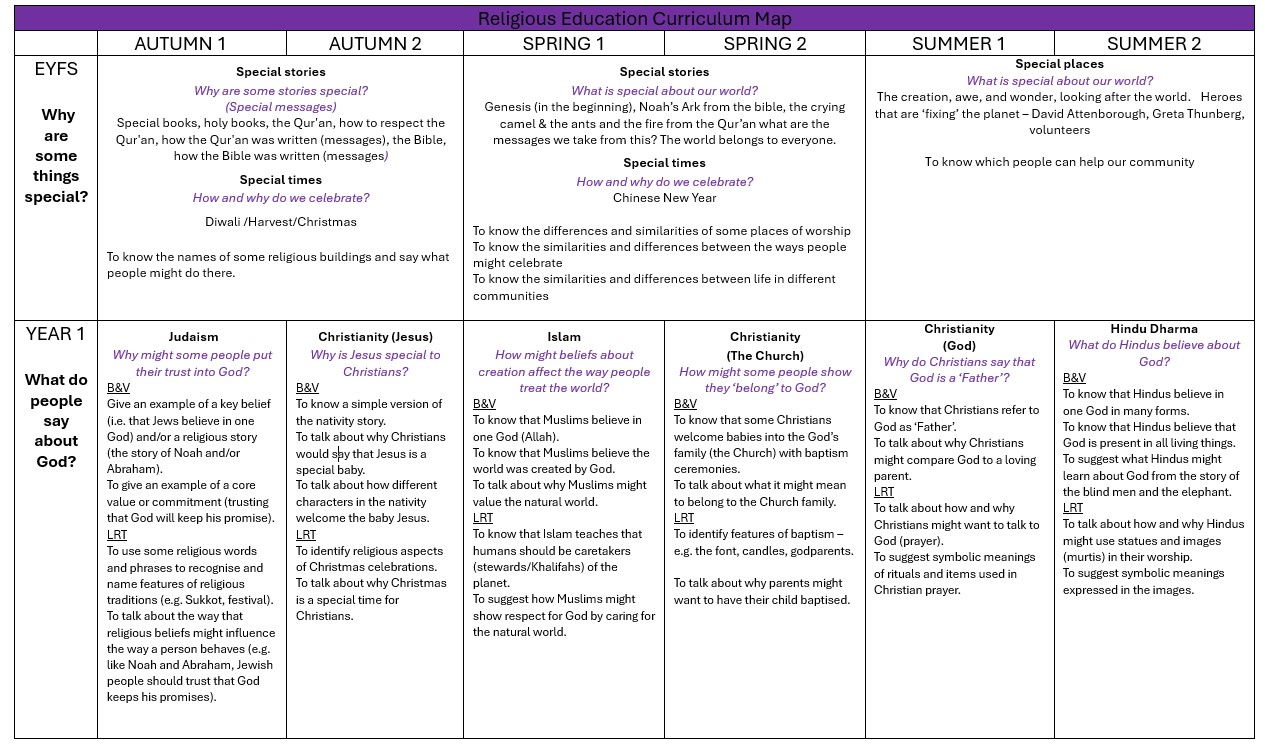
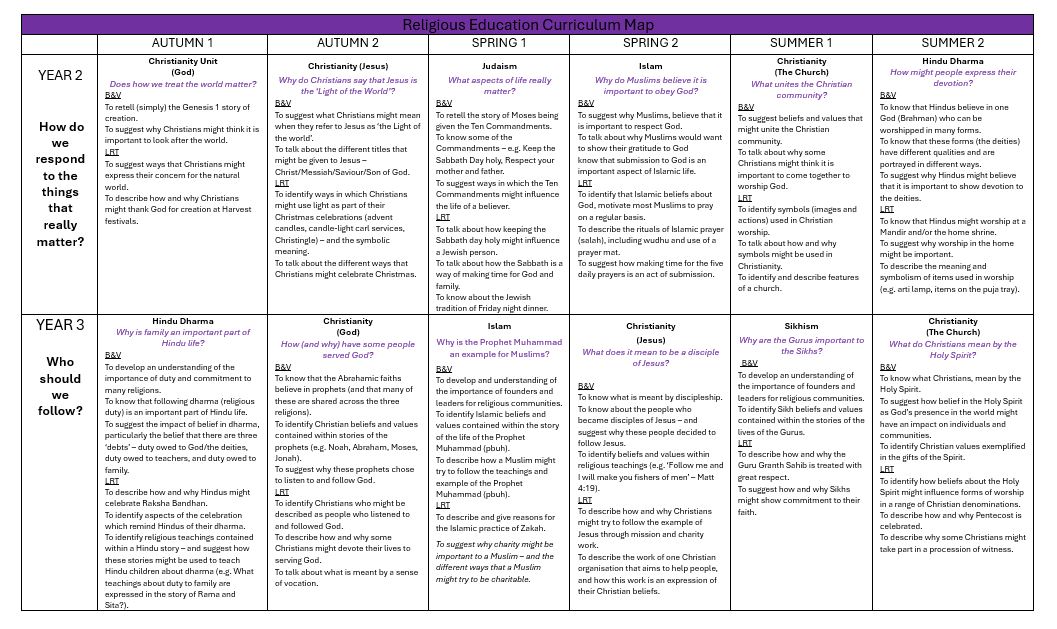
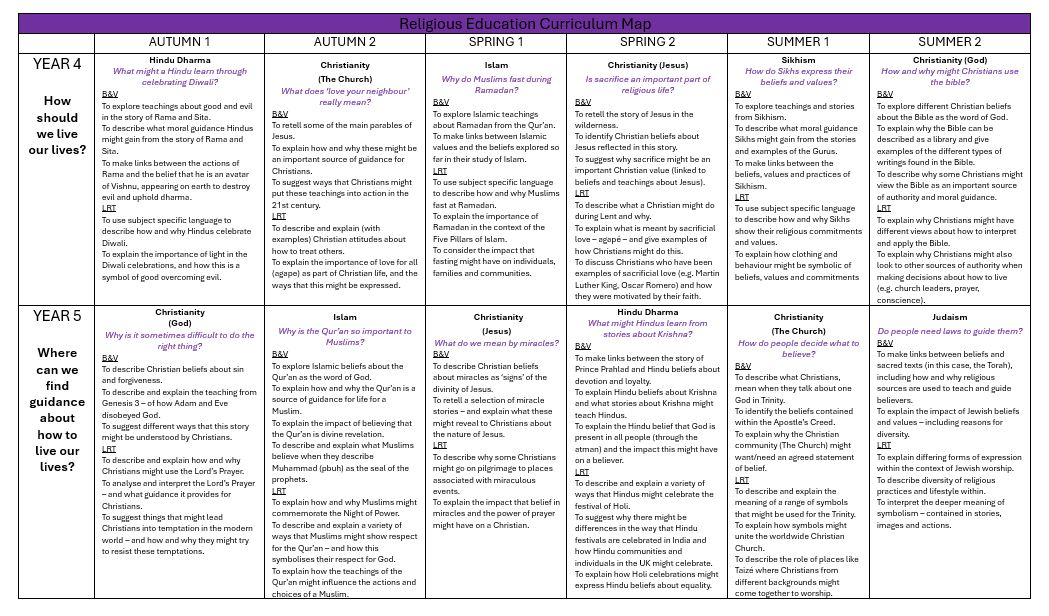
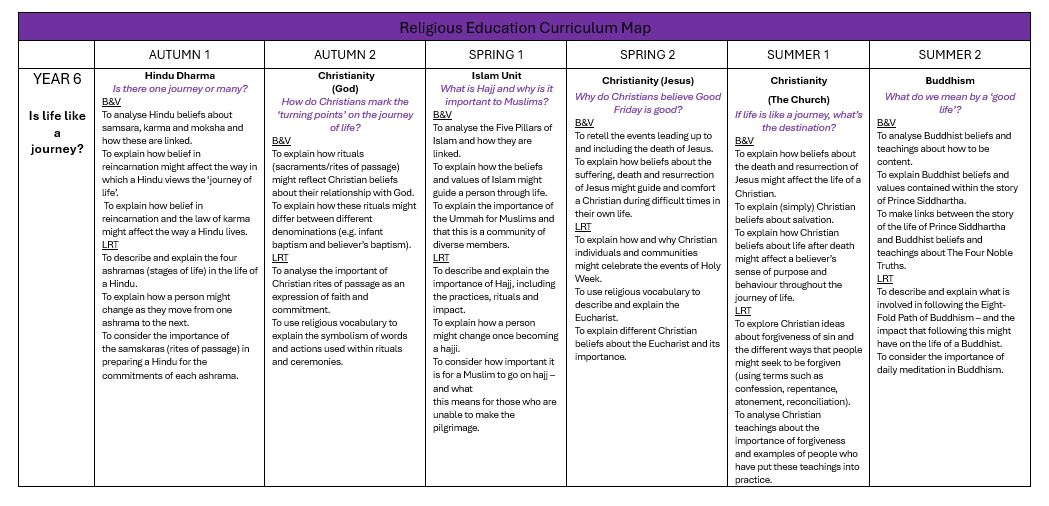
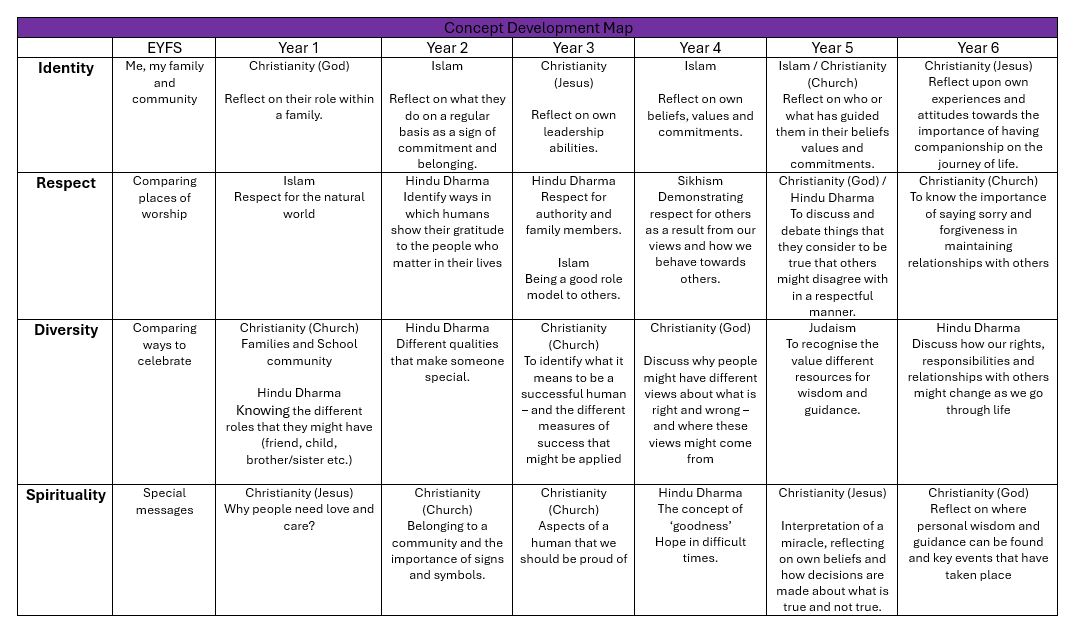
Situational Report
stoneyholme situation report re.pdf
Policy
Religious Education
Vision
In RE, we aim to nurture a lifelong curiosity about faith, encouraging pupils to reflect upon, develop and affirm their own beliefs and foster an appreciation of and respect for the differences of belief and culture within society.
Intent
- To develop knowledge and understanding of, and their ability to respond to Christianity, Islam and other religions presented in Great Britain.
- To explore issues within and across faiths and develop empathy for the experiences of others.
- To understand and respect different religions, beliefs and values and traditions and their influence on individuals, societies, communities and cultures.
- To develop an interest in and reflect upon the natural world around them and perceive their place in it.
- To stimulate learning and personal reflection, the outdoor environment and local area around school is used to frequently embed and increase subject knowledge. Children have access to a range of artefacts, key texts and stories that will support children to consider important questions and set the scene for discussion.
- To ensure the children have a wide range of rich experiences, trips to different places of worship and people of different faiths visit school.
- To reflect upon insights gained and consider what is important for them.
- RE supports Spiritual, Moral, Social and Cultural Development by looking at life questions, values, right and wrong and the preparing of children as citizens in a plural society.
- All RE work will support the learning of English through discussion work, researching, asking questions, reading and reflecting upon stories (secular and religious) and in explanation of religious vocabulary.
Implementation
The EYFS RE curriculum is taken from the EYFS Statutory Educational Programme and The Lancashire Agreed Syllabus
- In the EYFS pupils explore their knowledge and understanding of the world through hands on practical activities in continuous provision and within more specifically structured activities.
- Children will start by looking at people and the communities around them and will have the opportunity to visit different places of worship and meet people from outside their community.
- Following the Lancashire Agreed Syllabus, pupils in EYFS will explore the key question ' Why are some things special?' and will learn about different celebrations across three world religions Christianity, Islam and Hindu Dharma. Pupils will also learn about why some stories are special and what is special about of world.
The KS1 and KS2 curriculum is taken from the Lancashire Agreed Syllabus covering 6 world religions.
The curriculum is designed to build on previous learning enabling children to know more and remember more.
- The syllabus aims to provoke challenging questions about the ultimate meaning and purpose of life, beliefs about God, the self and the nature of reality, issues of right and wrong, and what it means to be human.
- Throughout Religious Education children acquire the necessary knowledge and skills to make sense of the complex world in which they live so that they can respect religious and cultural differences.
- Each unit of work consists of a sequence of lessons focusing on a key focus question. Teachers ensure that they check prior knowledge and always review previous learning
- Each Year group is given a key question, which provides the central line of enquiry across each year group and then each unit of work has a focus question to provide a point of exploration within each religion.
- RE is taught for one hour per week in KS1 and in KS2 1 hour and 15 minutes.
- Each unit is structured to include the following elements:- Shared Human Experience (the nature of being human), Living Religious Tradition (principal religious traditions encountered in the world), Beliefs and Values (the theology that lies at the heart of these traditions) and the Search for Personal Meaning (a lifelong quest for understanding)
- We encourage children to think like theologians by employing disciplinary approaches to learning: interpretation, awareness, similarities and differences, significance, expression and reflection
- Substantive concepts that link directly to RE are mapped out to show progression from EYFS -Year 6. These concepts are; spirituality, identity, diversity and respect
- Trips and visitors from different faiths to provide rich experiences and give pupil's opportunity to ask questions
- To ensure all pupils are able to access RE, teachers plan for and provide adaptations for pupils
- Explicit teaching of subject specific vocabulary
- Pre teaching
- Use of 'talk partners' to encourage collaborative learning and discussion
Impact
Our RE Curriculum is planned and organised to ensure progression in Christianity, Islam and Hindu Dharma from EYFS - Year 6. In addition, throughout a pupils' time at Stoneyholme, they will learn about 3 other main religions; Judaism, Sikhism and Buddhism.
The following methods are used to track progress and impact in RE:-
- Key questioning on previous knowledge and current
- Quizzes at the end of units each half term
- Pupil discussions within class about their learning
- Pupil interviews about their learning with the subject leader
- Monitoring of books, knowledge organisers, long term plans and the website
- Environmental learning walks
- Assessment of key knowledge of religions taught, including assessment of weekly key questions on knowledge organisers and an overall judgement at the end of a unit of work
- Data analysis at the end of an academic year
Pupil Voice
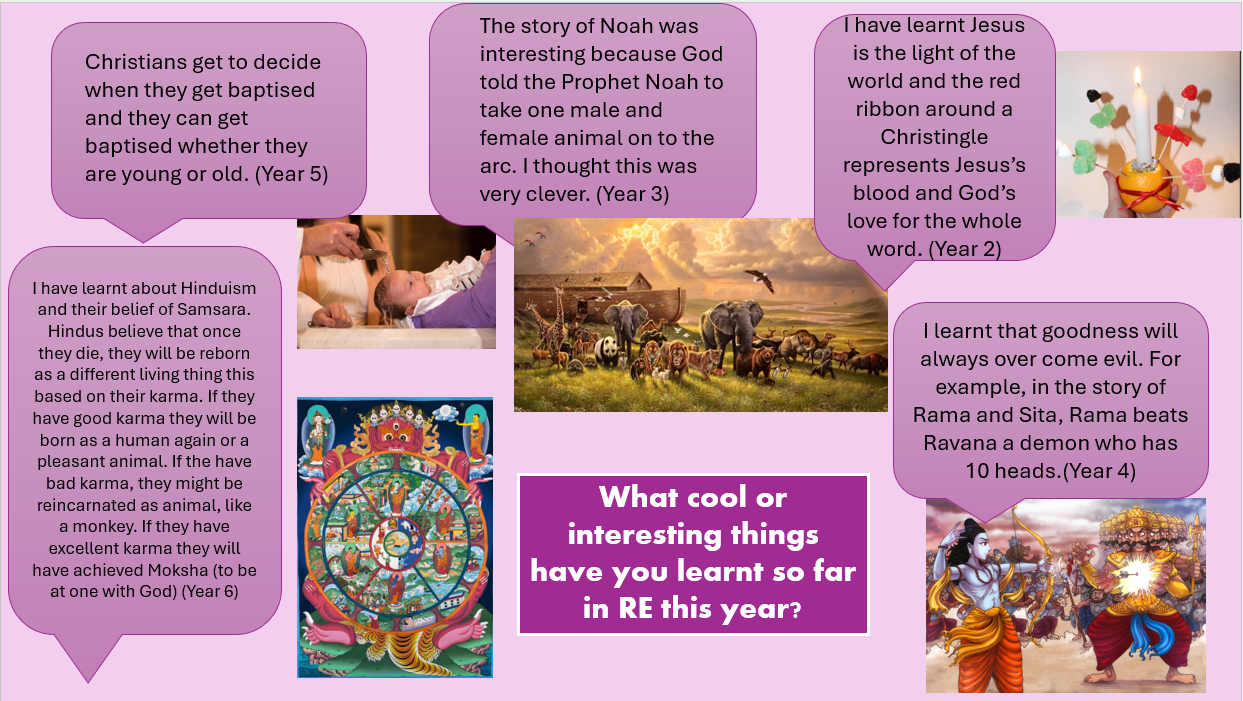
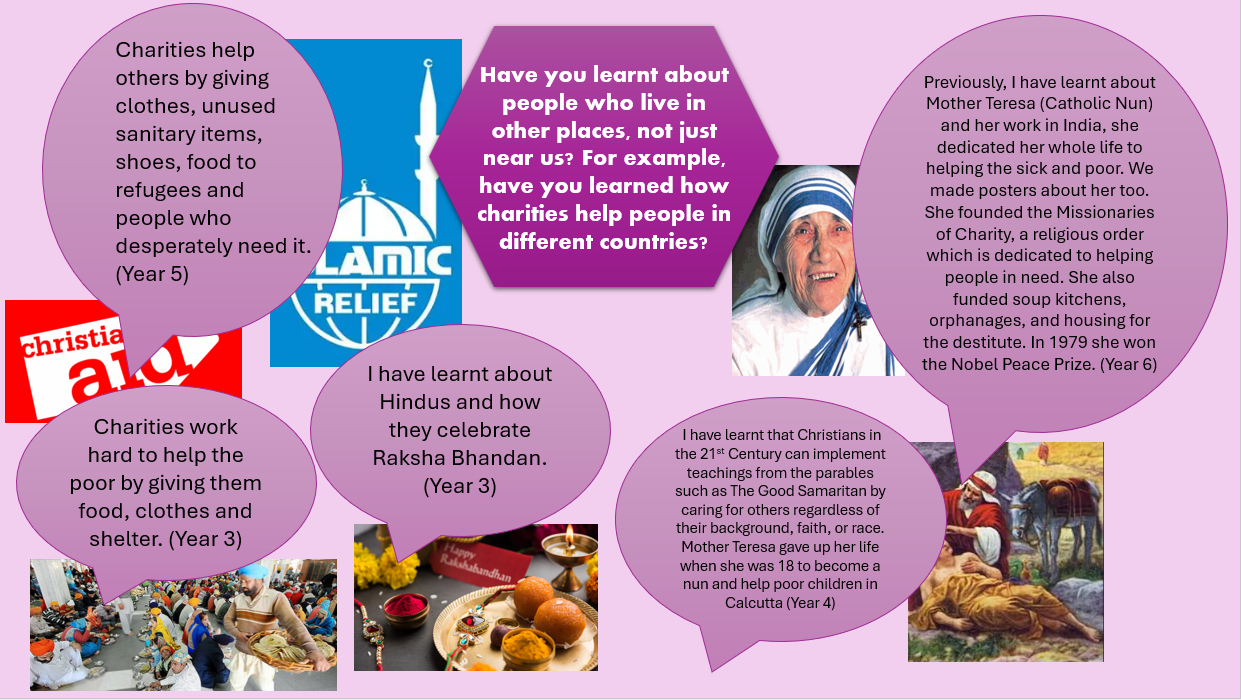
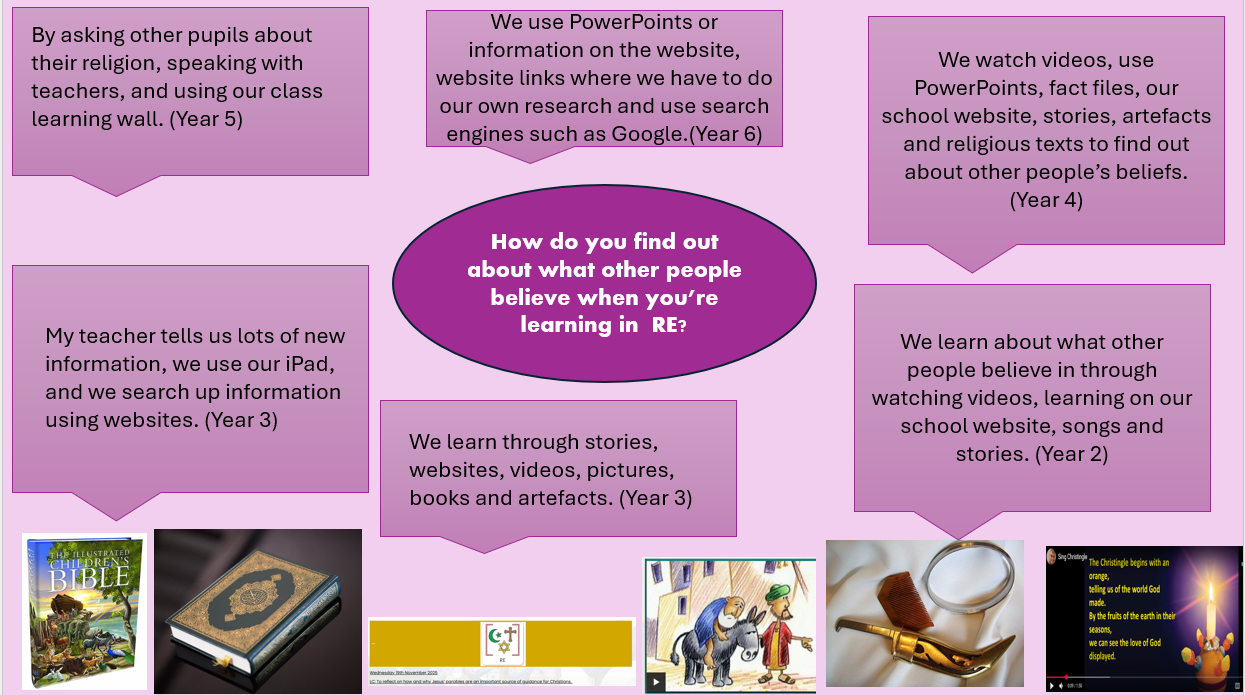
Showcase
EYFS
In EYFS, the children have been learning about how and why we celebrate Diwali, Harvest, and Christmas. Their focus has been on the concept of diversity, exploring and comparing the different ways people celebrate special occasions. The children have discussed traditions, foods, stories, and symbols linked to each festival, helping them develop an understanding that celebrations can be similar or different depending on cultures, families, and communities.
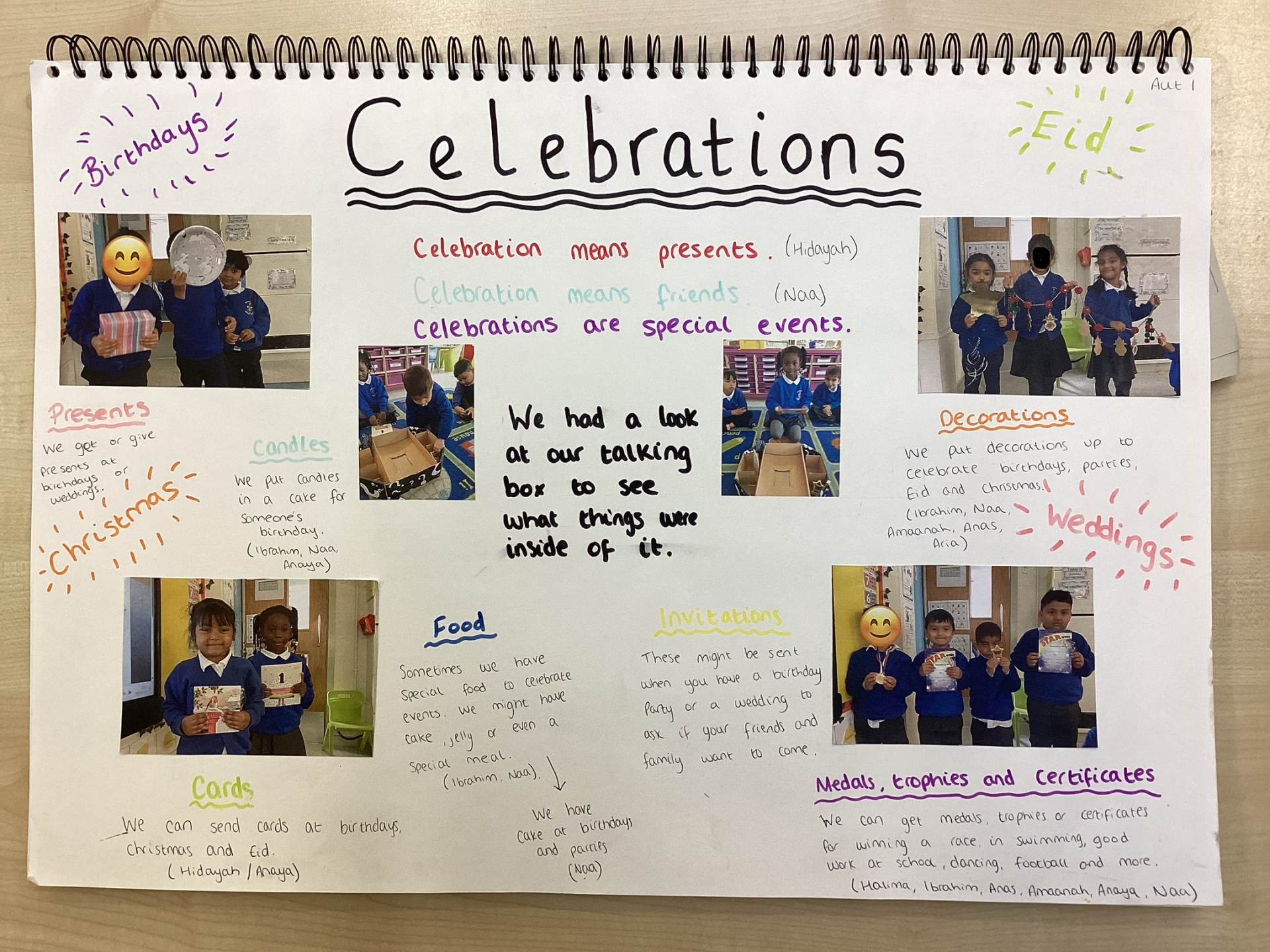
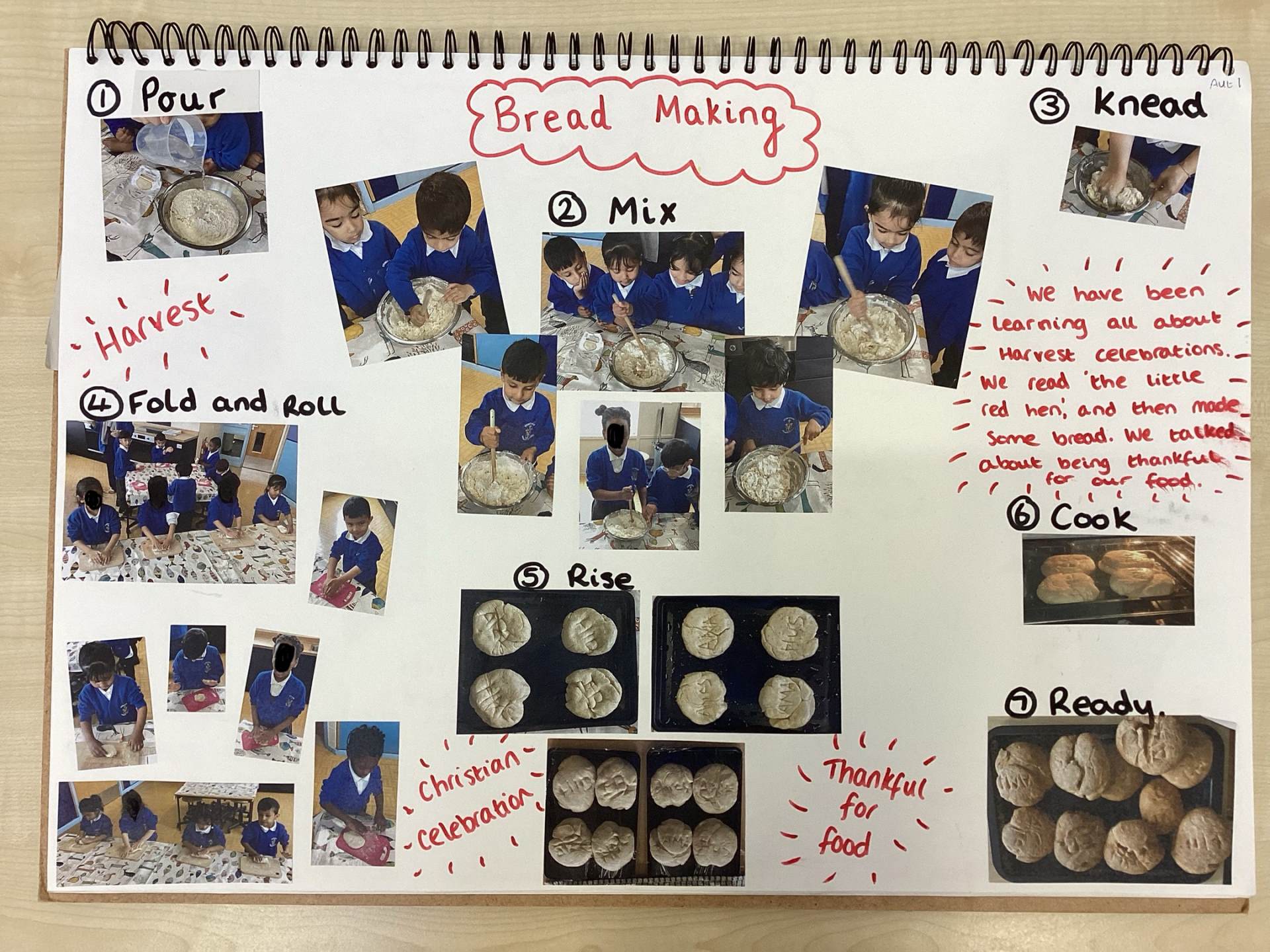
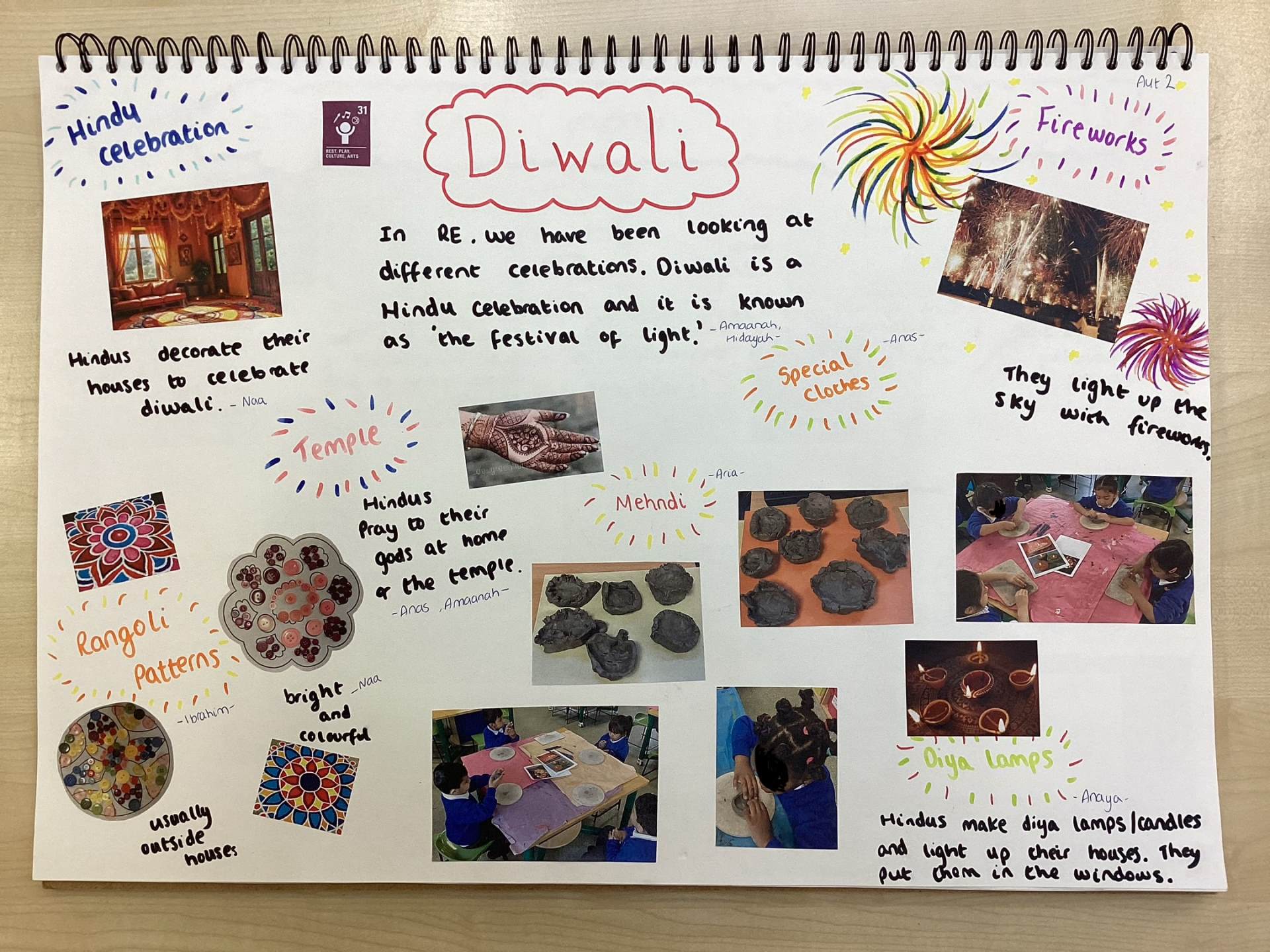

Year One
In Year One, the children have been learning about the Christmas story. They have enjoyed identifying and discussing the main characters and key events in the Nativity. The children have also focused on the concept of identity, exploring their own roles within their families and recognising what makes each person unique and special.
/i/video/4K_Fathima/Reveal_2-540p30.mov
Year Two
In Year Two, the children have been learning about how Christians use light in worship and celebrations. They created beautiful Christingles and reflected on the meaning of each of its parts.
/i/video/4K_Fathima/Year_2.mov
Year Three
In Year Three, the children investigated how and why some people choose to serve God. They explored why serving others is important to many Christians and examined the role of service and sacrifice in Christian life. Their learning drew upon stories from the Abrahamic faiths.
/i/video/4K_Fathima/Reveal_3-540p30.mov
Year Four
In Year Four, the children learnt what the story of Rama and Sita teaches Hindus about good and evil, and how celebrating the festival of Diwali reflects these beliefs.
/i/video/4K_Fathima/Yr4_Hinduism.mp4
Year Five
In Year Five, the children explored where Muslims find guidance on how to live their lives. They investigated the teachings of the Qur’an, examined the symbolism of the Holy Book, and considered why it is so important to Muslims.
/i/video/4K_Fathima/Top_7-540p30.mov
Year Six
In Year Six, the children reflected on the question, “Is life like a journey?” and focused on the Hindu dharma teachings of samsara, the cycle of birth, life, death, and rebirth. They learned that many Hindus view life as a spiritual journey in which each person aims to live according to their dharma—living responsibly, truthfully, and kindly. The children explored how the choices people make can affect their future lives through the concept of karma, and how the ultimate goal for many Hindus is moksha, freedom from the cycle of samsara.
/i/video/4K_Fathima/Yr6_Hinduism.mp4

